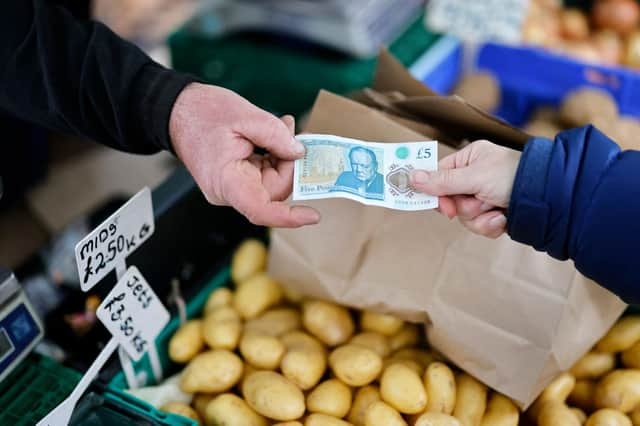Highest rate of inflation for a decade is a warning sign government must heed – Scotsman comment


Perhaps unsurprisingly given this extraordinary figure, controlling inflation subsequently became more of a priority for government with rates averaging just 2.5 per cent between 1989 and this year.
However, the success of economic policies designed to keep it under control means that there will be many people alive today who are unaware of just how serious a problem inflation can become if allowed to run out of control.
Advertisement
Hide AdAdvertisement
Hide AdFor them, the news from the Office for National Statistics that the consumer prices index rose from 4.2 per cent in October to 5.1 per cent last month, the highest rate in more than a decade, may sound like something only of much interest to economists.
But the figure took even the experts by surprise – the Bank of England had been expecting inflation to peak at five per cent four months’ time – and the retail prices index showed an even bigger rise, soaring to 7.1 per cent last month, the highest level in more than 30 years.
Record fuel prices and disruption to supply chains were said to be driving the increases, which were particularly evident in the cost of petrol, energy, cars, clothing and food.
Given the Bank of England has a target of keeping inflation to two per cent, some may expect to see interest rates go up. However analysts believe the Bank will decide not to do this at a meeting on Thursday because of fears over the Omicron Covid variant and the possibility of new restrictions to control the virus.
So people with savings in the bank are seeing its value eroded away, those who receive pay rises of less than inflation and pensioners on fixed incomes will find their money does not go so far, and people on low incomes will feel the squeeze particularly hard.
It’s no surprise, then, that a survey by comparethemarket.com reported that 41 per cent of families said their financial well-being was worse than Christmas 2019, before the pandemic struck.
We already have a Covid crisis, an NHS crisis, an energy crisis, a climate crisis and more. We hope the government and the Bank ensure that an inflation crisis is not added to this growing list of woe.
A message from the Editor:
Thank you for reading this article. We're more reliant on your support than ever as the shift in consumer habits brought about by coronavirus impacts our advertisers.
If you haven't already, please consider supporting our trusted, fact-checked journalism by taking out a digital subscription.
Comments
Want to join the conversation? Please or to comment on this article.
